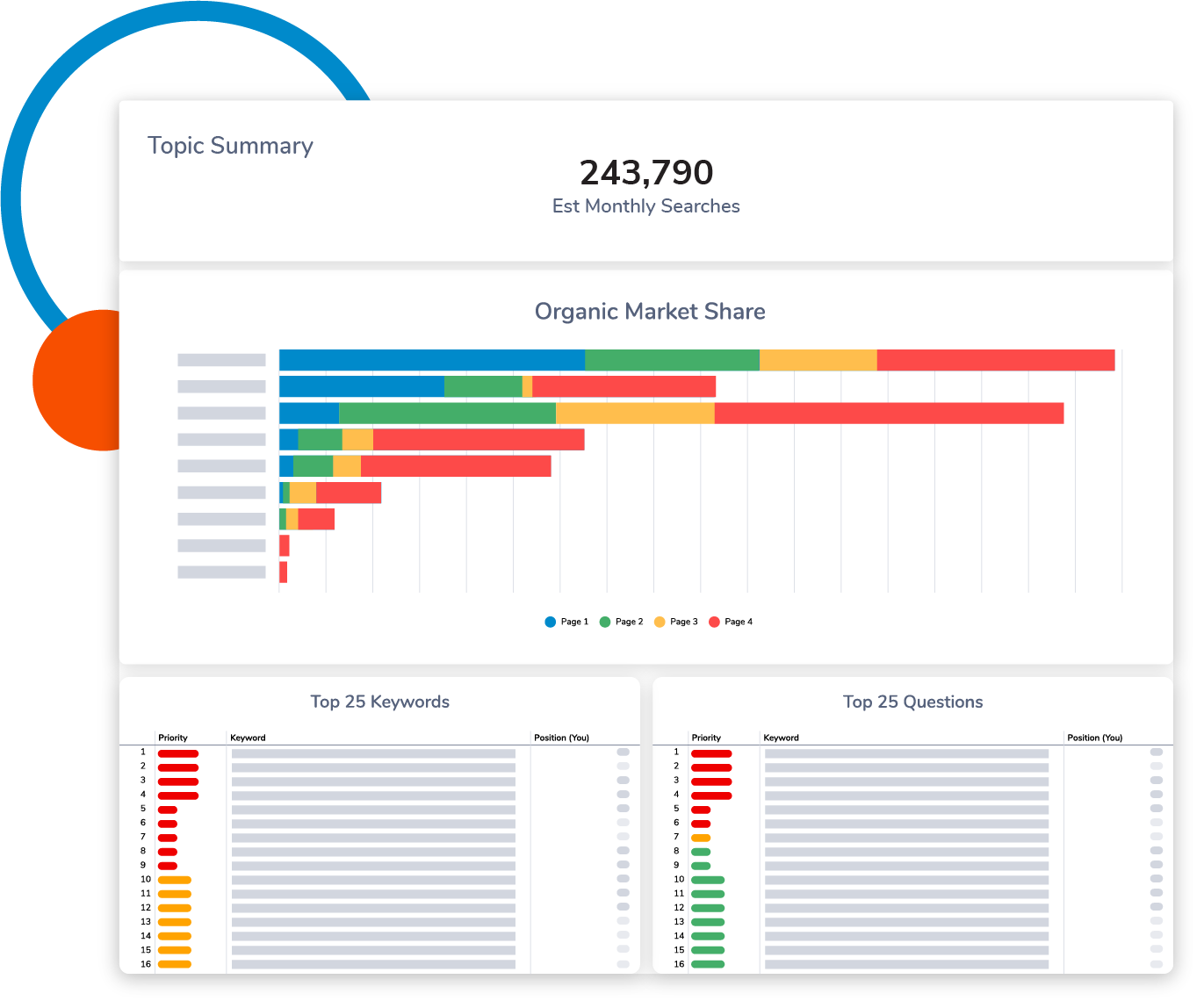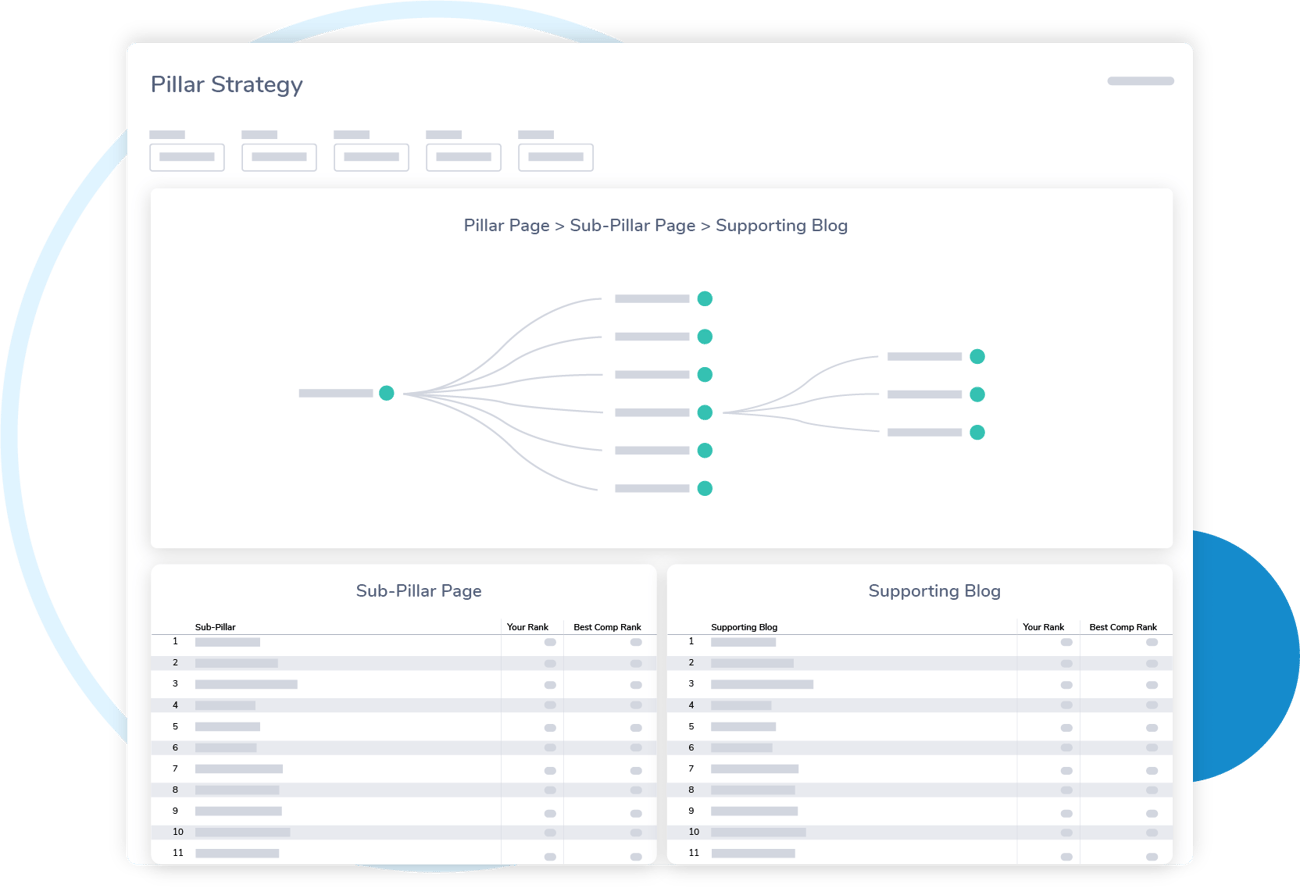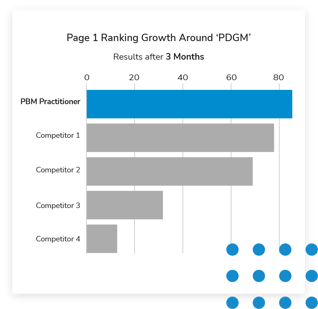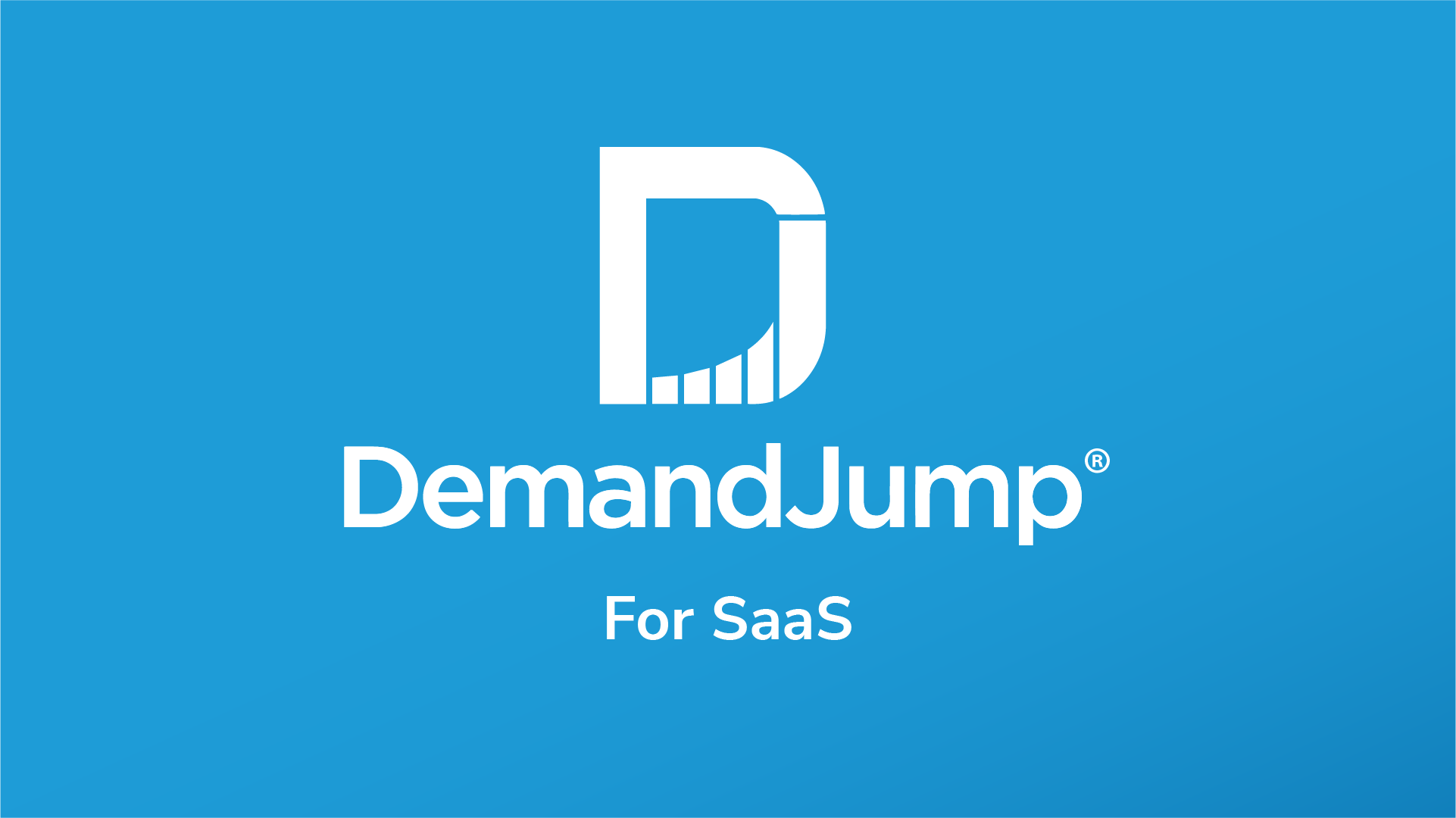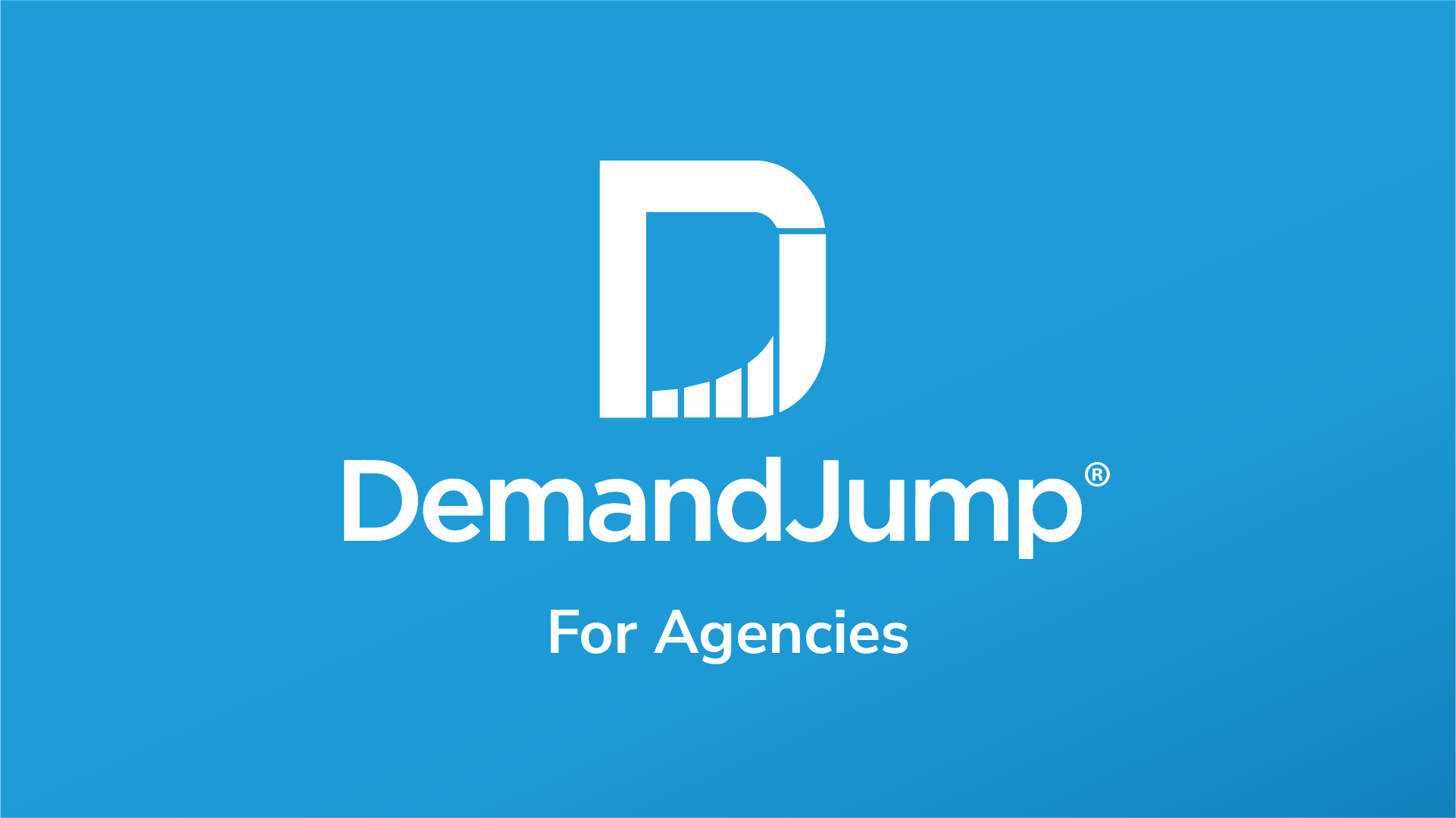How do I promote my SaaS company? Sure, this question is simple enough. But all marketers know, the answer often comes with a lot of baggage.
For many, discussing SaaS marketing best practices can feel like scaling a mountain. The destination is deceivingly straightforward—keep climbing and you’ll reach the top eventually, right? Wrong. Your journey to the summit of success is often filled with many obstacles that can easily lead you astray. Without the right gear and a solid plan in place, you’ll never make it to the top.
So, why is SaaS marketing different, specifically? When it comes to marketing SaaS products, marketers face many unique challenges, including:
- Drawing in new leads while maintaining strong relationships with existing customers to drive upselling and cross-selling opportunities.
- Navigating extremely short sales cycles.
- Adapting and scaling marketing solutions to constant change and new innovations to the SaaS platform.
- Knowing how to best represent intangible and complex software solutions in an interesting and simplified way.
To help you navigate the rugged terrain of SaaS marketing, the DemandJump team put together a list of the best methods for marketing SaaS companies. With the right mindset, tools, and advice, anyone can reach the peak of SaaS marketing success! Let’s begin your ascent to the top of SaaS mountain!
1.) It’s All in the Branding
Everyone can agree, the SaaS industry is super competitive. And in such a highly saturated market, good branding can be your secret weapon. In the end, a SaaS solution’s pricing and features mean nothing to a prospect if their presentation isn’t consistent and engaging. Think of lazy branding like a spelling error on a resume. No matter how well you present your professional experience, the person on the receiving end is unlikely to look past this seemingly insignificant error. If you think about it, your branding has the power to impact every aspect of your SaaS marketing funnel.
According to Forbes, consistent and intelligent brand presentation across all platforms increases revenue by up to 23%. The same study found that 64% of consumers believe shared values help them to build a stronger relationship with a brand. This means that all aspects of your visual design and messaging need to:
- Engage and delight your target audience.
- Effectively describe your company’s mission, core values, and competitive differentiators.
Ultimately, your brand is critical for effectively communicating the overall value, quality, and reliability of your SaaS solution.
Here are are the most important steps for developing a comprehensive SaaS branding strategy:
- Identify your company’s mission, values, and key points of difference.
- Develop a unique visual identity.
- Create a unique voice that speaks to your target audience.
- Compile everything into a comprehensive style or branding guide.
- Ensure that all content produced aligns with your brand identity.
Create a unique and eye-catching logo.
To achieve all of this, your company needs to align itself with a powerful design arsenal. This means outsourcing or hiring a UX designer, graphic designer, and content writers. Each of these professionals will help you effectively create a compelling story for your brand that justifies your company’s existence.
2.) Content Can Make or Break Your SaaS Marketing Strategy
No one can deny that content creation is one of the most valuable aspects of SaaS marketing. In fact, a recent survey found SaaS companies that incorporate content into their marketing strategy experience returns of as much as 647% on their investment. But how do you make the most out of the content you create? You need to have a content strategy. Of course, there are many approaches you can take when creating your content strategy. Here’s ours.
Cracking the Code to Content Success with Pillar-Based Marketing
DemandJump’s Pillar-Based Marketing (PBM) is an SEO strategy that utilizes a sophisticated linking methodology to effectively capture organic search traffic by mimicking the network of search behavior related to your selected pillar topic. A pillar topic is a subject that your company wants to rank for on search engines. For example, a company that sells appointment scheduling software would want to rank for a topic like “Appointment Scheduling.”
The DemandJump platform effectively automates your keyword research and PBM strategy creation, making it simple for you to align your content to user search behavior. Really, a PBM content strategy enables companies to scale search engine results pages (SERPs) and win the attention of their target audience.
Although this all may seem complicated at first glance, we promise the PBM process is actually pretty straight forward when it’s powered by the DemandJump platform!
Here’s how it all breaks down.
DemandJump’s solution provides high-value titles and keywords to use in each piece of content you publish. Using the PBM backlinking strategy creates a comprehensive, accessible network of related content centered around your chosen pillar topic. These combined efforts boost the SEO authority of your main pillar page and website as a whole.
Here is the basic layout of the PBM linking strategy:
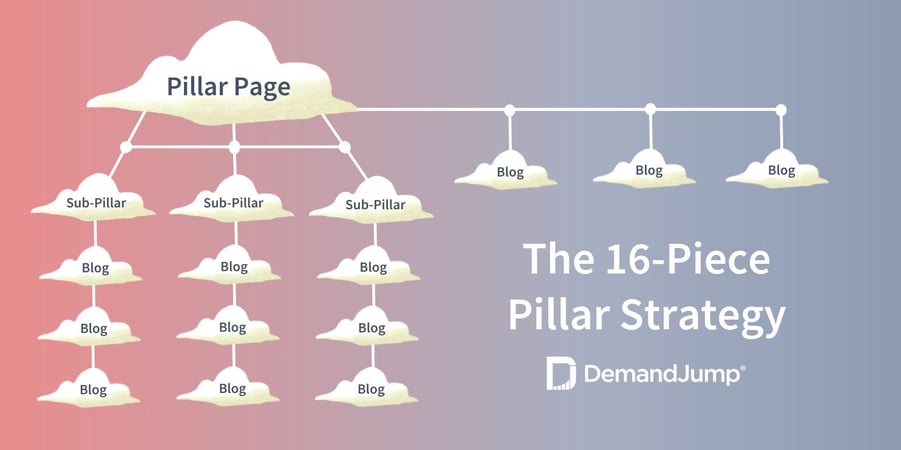
From small startups to fortune 500 companies, PBM works for anyone. And the results often speak for themselves—utilizing our platform and PBM strategy earned us 91 first page search rankings in less than five months.

Obviously, content marketing is just one component of your SaaS marketing gear, but without it you won’t ever reach the summit of search engine page results. Learn more about how PBM works and how it can benefit your company here.
3.) Know Which Channels Your Audience Loves
What are SaaS marketing channels that get the best results? Generally, the best channels for SaaS are: paid search, paid social, organic/SEO driven traffic, and in-person events. But if you’re looking for specifics, you’ll need to do some research and gather lots of data.
To truly understand which marketing channels are the best option for your company, you need to:
- Keep a close eye on your competition and observe which channels they’re using the most and how they’re making them work.
- Test out channels one by one, record your results, and start comparing.
- Experiment with different types of content when testing out different channels.
- Invest in an analytics software to compile your marketing data and track the success of your different campaigns.
4.) Take Advantage of Conferences and Other Events
Really, events are the unsung heroes of SaaS marketing. Getting a spot at a popular SaaS industry conference, or even hosting your own event, could lead to some serious results. Presenting at an event gives you a chance to strut your stuff and provides valuable insight into how prospects are thinking and feeling about your solution.
From our experience, we’ve found that paid leads take 97 days to schedule a meeting, organic leads take 30 days, and leads from events take a mere two weeks. Additionally, the leads generated from events are often highly-interested in your solution and are more willing to commit to a purchase. Lastly, conducting a successful presentation at a well-attended event will significantly boost awareness of your product and support your brand’s reputation.
5.) Arm Yourself With SaaS Marketing Tools
To conquer SaaS marketing, you need tools and lots of them. Think back to our mountain climbing analogy from the beginning of this blog. If you tried to climb a mountain with your bare hands, you’d never make it. You need gear! Although there’s a vast number of SaaS marketing tools out there, here are the most critical ones.
Analytics Tools
As you’ve probably guessed, SaaS marketing is all about the data. Therefore, your analytics tools will be your closest allies. On a basic level, marketing analytics tools allow you to monitor and forecast the performance of various campaigns. Google Analytics and Google Search Console are some of the most popular—although basic—tools available.
Because SaaS is such a data-driven industry, you’ll likely need a solution that can deliver insights into critical SaaS marketing metrics. Ultimately, the analytics tools you choose should be able to uncover the preferences of your website’s visitors and show you a clear path for optimizing your page’s conversion rates.
Email Automation Tools
Like all things in SaaS, email marketing is complicated. That’s why SaaS marketers rely on email automation tools to help them collect and track critical lead and customer data to optimize their email marketing campaigns. Many general-purpose email scheduling providers don’t have the data or analytics capabilities of SaaS companies for their marketing campaigns.
The right SaaS email marketing tool will be able to gather lead data from interactions on your website and customer data from your product back-end. This ensures that you’ll receive the full picture of behavioral data before you make any email marketing decisions.
Because the email marketing platform market is so saturated, we suggest reviewing software reviews from sources like Gartner. This way, you can make the most informed decision possible.
Social Media Tools
When done right, social media is an excellent way to increase brand awareness and drive traffic. When done wrong, it can be a total waste of time and money. Really, the right tools make all the difference. At a high-level, social media tools simplify how to share and schedule content on social networks and how you interact with your customers.
One thing that you should look out for when comparing social media marketing solutions is their data capabilities. Yes, we know, everything in SaaS always comes back to the data. A robust social media marketing solution should offer extensive metrics and help you calculate your ROI with ease. Although these features tend to drive up the price of your subscription, they’re well worth the investment in the long run.
Visual Design Tools
Visual content is everywhere, and it’s especially important to have visual content on a SaaS website. Remember how important branding is? Creating helpful and attention-grabbing visual content is a key component of a SaaS branding strategy.
Using graphic design tools, your designers can create visuals that highlight the features and benefits of your product and explain how it all works. Creating interactive visuals for your website and other marketing channels allows potential customers to better understand your product and see firsthand how it can benefit them.
Although software like Adobe Creative Suite is a staple for visual design, beginner tools like Canva can enable other non-design focused members of your team to quickly create visuals for presentations, social media posts, and meetings.
Time to Climb That SaaS Marketing Mountain
You’ve reached the end of DemandJump’s guide to marketing SaaS products. We hope this got your gears turning! If you’re hungry for more SaaS marketing knowledge, check out our webinars, blog, or podcast
